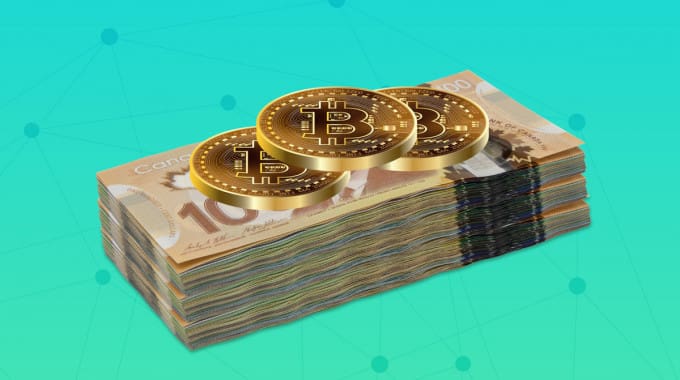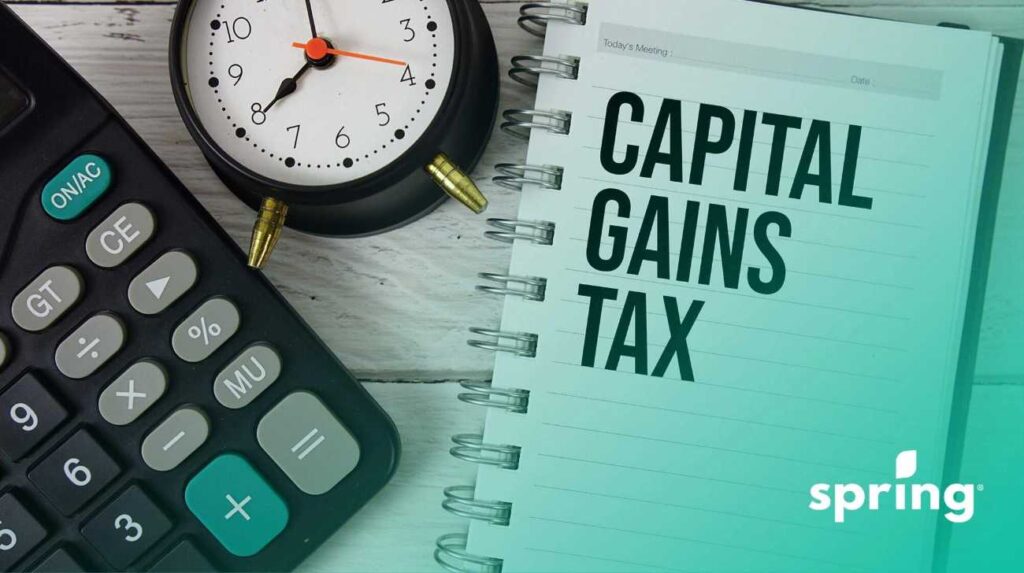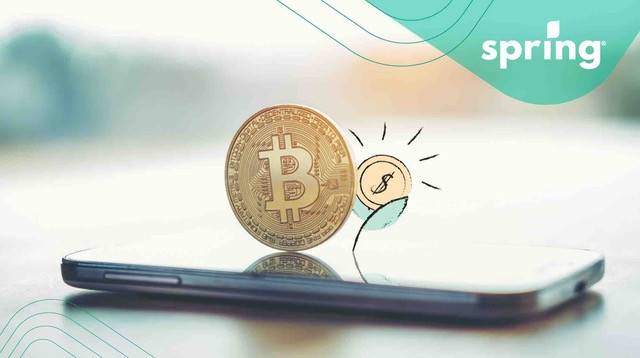Fast forward over a decade later and Bitcoin – the most well-known form of cryptocurrency – is on the lips of not only computer nerds, but the mainstream media and seemingly everyone in the financial world. One of the largest banks in the United States, JP Morgan, just recently announced it is planning to offer a managed Bitcoin fund.
Another measure of how far Bitcoin has come would be its valuation. At one point, in 2013, Bitcoin was valued at just over $67 US dollars per coin. Recently, the popular cryptocurrency briefly rose above $79,000 Canadian dollars. That’s a jaw-dropping trajectory.
If you’re feeling confused at this point, you’re not alone. Many people are asking what exactly is Bitcoin, and what do you do with it? What can you buy with Bitcoin? Is it all speculation and how do you invest in it? We’ll do our best to answer some of these basic questions, and hopefully get you up to speed on the basics of Bitcoin.
What Exactly is Bitcoin?
Bitcoin is the very first form of “cryptocurrency,” which is a type of digital currency that is completely virtual. Unlike the cash we normally use in Canada, cryptocurrencies like Bitcoin are completely decentralized, meaning it’s not associated with any bank or governing body like the Bank of Canada. There is no singular institution printing Bitcoins with the Queen’s face on it.
Cryptocurrency like Bitcoin is powered by peer-to-peer technology – maintained by a group of volunteer coders around the world called “miners” (think Wikipedia editors) – and software-driven cryptography, which is a way to pass on secret information between a sender and receiver. In other words, each Bitcoin contains a unique computer code that can be transferred to other users or stored in a “digital wallet” on a computer or smartphone.
Bitcoin Glossary
Digital wallet: Secure storage used to send and receive digital currency.
Blockchain: A sequence of blocks, or units of digital information, stored consecutively in a public database. The basis for cryptocurrencies.
Miners: Contributors to a blockchain. They can be professional miners or organizations with large-scale operations, or home office hobbyists.
Cryptocurrency: Cryptocurrencies are digital currencies that use cryptographic technologies to secure their operation.
Fiat money: Legal tender money backed by a central government, with its own banking system. This is usually physical cash, or something like bank credit.
How is Bitcoin Exchanged?
Bitcoins and other cryptocurrencies are bought and sold on several currency exchanges. You can buy Bitcoin using “real” money. Your conventional cash is often referred to as “fiat money” in the cryptocurrency world because it is backed by centralized, national governments.
Some of the biggest exchanges where you can use traditional fiat money for Bitcoin is Bitstamp, Coinbase, and Gemini. In Canada, WealthSimple Crypto and CoinSmart lead the way. Once you purchase a Bitcoin it must be stored using a digital wallet.
All Bitcoin transactions must be stored in a shared public database maintained by individuals around the world called “miners.” This shared public ledger system is known as blockchain. The name comes from the idea that each transaction is a “block” that is “chained” to a code, creating a permanent record for each transaction. This form of technology not only services Bitcoin, but over 5,000 cryptocurrencies that have followed behind in its wake.
Can I use Bitcoin to Buy Things?
Bitcoin is a growing currency with more and more retailers and service industries accepting crypto as payment. Elon Musk, the CEO of Tesla, recently gave Bitcoin the thumbs up and said the electric car giant would accept Bitcoin as payment for its vehicles in the future.
It’s a sign that Bitcoin has arrived in the mainstream. Although it’s nowhere near as commonplace as, say, a debit machine, more and more companies are providing a Bitcoin payment option through third party services. One example of this would be Purse, a company that can facilitate the exchange of Amazon gift cards for cryptocurrency. You can make your order at Amazon, then process the payment in Purse using Bitcoin.
Other big-name companies are setting up systems that enable Bitcoin payments. Microsoft and Home Depot are just the latest names to get onboard.
Can Bitcoin be Converted to Cash?
The most common way to cash out your Bitcoin and convert it into traditional fiat money is to use a third-party exchange like Coinbase, Bitstamp or WealthSimple Crypto and CoinSmart in Canada. Once you set up an account, it’s a simple process to cash out via a secure bank transfer. Just be prepared for a service fee, as with any financial service.
The tricky part of cashing out Bitcoin is knowing when it’s the right time to sell. Bitcoin and other cryptocurrencies are notoriously volatile, meaning its value can change rapidly for better or for worse. In a single year the value of Bitcoin went from around $12,000 to $70,000 Canadian dollars. That’s an increase of 500%! Has it hit its peak and just getting started? It can literally be a million-dollar question.
How Can I Invest in Bitcoin in Canada?
Investing in Bitcoin in Canada is simple when using third-party exchanges like WealthSimple or CoinSmart. The latter goes to great efforts to create a beginner-friendly user environment. CoinSmart’s “mission” is to make cryptocurrency accessible to everyone by providing an easy-to-use platform for your desktop or mobile.
WealthSimple is the shining star of cutting-edge banking in Canada, so it’s not a surprise the company is making cryptocurrency part of its retail offerings. Like its stock trading platform, WealthSimple offers a smooth website design and accompanying app. CoinSmart’s advantage over WealthSimple is its wider selection of currencies to buy and sell. WealthSimple currently only offers Bitcoin and Ethereum.
One other way to invest in Bitcoin in Canada is to buy an ETF (exchange-traded fund). This gives you a “basket” of cryptocurrencies and can be purchased from any online stock brokerage. Canada is a bit of a pioneer when it comes to Bitcoin ETFs. There are currently three in Canada versus none in the United States.
Should I Invest in Bitcoin? Is it Safe?
The main reason Bitcoin has received so much media attention this year is because of its soaring valuation. What was once the hobby of underground computer geeks has gained the attention of established Wall Street investors. Speculation has run rampant that Bitcoin will keep going higher and that it will eventually establish itself as a failsafe investor commodity like gold or silver.
Right now, Bitcoin’s value is defined entirely by perception and speculation. Whether you should invest depends on your appetite for volatility. You could see major swings up, but don’t be surprised if it goes back down just as fast. However, the process of investing in Bitcoin is safe, thanks to regulated trading platforms like CoinSmart and WealthSimple. It’s just the value of Bitcoin, and its meteoric rise, that can’t be trusted yet.
What Other Cryptocurrencies Should I Know About?
While Bitcoin is by far the biggest star of the cryptocurrency world, Ethereum is probably second in terms of popularity. Ethereum has also experienced a big jump in price, surging from $235 last summer to around $2,500 US as of this writing. Other notable cryptocurrencies include Litecoin, Cardano, and Stellar, all of which range around the $1 to $2 in price. As you can see, there’s quite a chasm between Bitcoin and its peers in terms of valuation.
Why Do People Like Bitcoin So Much?
It’s easy to see why Bitcoin initially appealed to the underground computer hacker types. It offers anonymity for its users and creates financial decentralization, taking power away from central banks and monetary institutions. There’s definitely a rebellious element to Bitcoin that attracted the computer-savvy participants at its outset.
Ironically, it’s now the big financial institutions that are embracing Bitcoin and trying to reap big rewards. And you no longer need to be a hacker to participate. Bitcoin is easily accessible to anyone with an interest, and perhaps some dollar signs in their eyes.
Related Articles
- Should I Save Or Invest My Money?
- Investing 101: Wealthsimple Or Questrade?
- 5 Simple Rules For Getting Started As A New Investor








